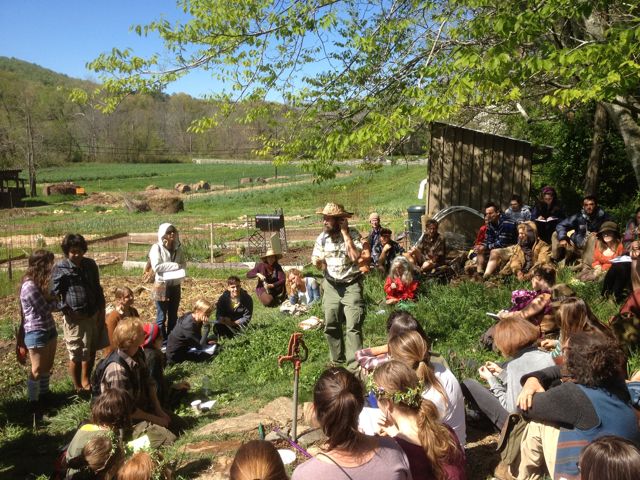Who was Frank Cook? That’s like asking who first swam the entire Amazon (Martin Strel, of course.) Quite likely, many of the 150 who attended the April 7 Herb Symposium at Warren Wilson College in memory of Cook didn’t know him. In ethnobotany and herbalist circles, Cook was legendary for his global knowledge of plants and their uses.
In 2009, Cook passed away unexpectedly from what may have been brain lesions caused by a parasitic infection, possibly contracted on an international expedition. In visits to exotic locations in dozens of countries, he had exposed himself to many of nature’s most vicious elements, such as malaria — all in hopes of meeting the more than 5,000 genera of plants to which he felt intuitively connected. (For more about Cook, see Mountain Xpress articles “Wrangling Wild Greens” and “Wild Root Wannabe.”

The symposium opened with Juliet Blankespoor, owner of Chestnut School of Herbal Medicine, leading a circle of silence in remembrance of Cook, who she looked to as a teacher and colleague. Then she led the first plant walk of the day. With more than 50 people attending each walk, it was difficult to maneuver through the lean trail systems orbiting the college. But when there’s so much to say about each plant, there’s little need to walk far. In fact, after guiding what seemed to be a mostly college-age flock through a sock-drenching stretch of high grass, Blankespoor discussed three trees: basswood, hemlock and autumn olive, all of which proffer many edible, functional and medicinal uses.
While Blankespoor extolled the virtues of her outdoor vascular favorites, instructors Sandi Ford and Corey Pine Shane stirred the medicinal xylem in hour-long classroom discussions over subjects of “liver herbs detox” and “herbal first aid,” respectively.
Just before 11 a.m., another wave of teachers took the lead. Renowned ethnobotanist and natural-world folklore storyteller, Doug Elliott, and his son Todd — who attends Warren Wilson — were like pied pipers culling the bearded, coonskin-capped, barefoot, herbal-tea drinking, photosynthetic-loving bipeds. The senior Elliott, with his signature bark backpack and cattail fiber hat (one that he replaces in a day-long gather-and-weave session about every two years), and son (shovel in tow) baptized onlookers with “Woodslore” and “Wildwood Wisdom” (References to two of Doug’s many published titles). By the time participants walked half-way around a tree-lined field and dodged a couple of precariously positioned bee hives, they had palmed, licked or swallowed more than a half dozen wild edibles: Freshly sliced cattails, burdock root and dandelion were a few of the day’s star snacks.
Organizers left lunch up to the participants, who either brown-bagged for the occasion or went out and tried their newly gained foraging skills. (Even the pros recommend that you don’t try scarfing down greens without the aid of trained eyes and cautious tongues.)
The rest of the day was filled with more talks from other respected plant teachers like Marc Wiliams and Ceara Foley. Most importantly, though, through all the lessons, a theme emerged that was something Cook might have said: Plants are your friends. Take the time to get to know and love them, from the choice edibles to the briars, toxins and invasive species. They are the real teachers.
photos, video and story by Jonathan Poston



Frank Cook was an amazing guy.
So sorry to have missed this gathering! A well written article which depicts an aspect of my dear partner’s remembrance! Thank you for making the time in your lives to attend and support his message through these wonderful teachers!
Yes, we miss you dear Frank!
Take time to sit in the woods and listen….
The messages come through.
Peace,
Claudia